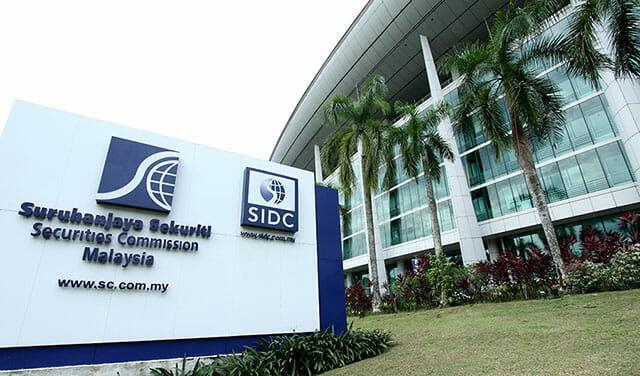The Securities Commission Malaysian is satisfied with the level of progress made by public listed companies to address issues on sustainability risks and opportunities.
In its CG Monitor report, PLCs have been noted to progressively adopt the corporate governance best practices as recommended in the Malaysian Code on Corporate Governance, including the new best practices introduced in the 2021 revision of the MCCG, particularly those relating to sustainability. This includes ensuring that the board and senior management undergo regular training to stay abreast of sustainability issues relevant to the company, with 58% of the PLCs having either a dedicated committee or a role in senior management in charge of the strategic management of sustainability for the company.
SC Chairman Dato’ Seri Dr. Awang Adek Hussin said he was pleased that PLCs continued to strengthen their CG best practices despite the challenging environment. “Good governance remains the bedrock of business and is key to maintaining
transparency and accountability,” he said. “This ultimately fosters sustainability and helps companies realise long-term benefits including reducing risks, seizing growth opportunities, increasing shareholder value and meeting evolving stakeholders’ expectations.”
Key findings from the CG Monitor include the setting of emissions reduction targets by PLCs. Firms are setting and committing to emissions reduction targets including achieving carbon neutrality by 2030 and net zero by 2050. This is based on the SC’s review of 50 PLCs that comprise, among others, large PLCs operating in the energy, plantation, and transportation, and logistics sectors. More than half of the PLCs are also disclosing emissions-related data even before the Bursa Malaysia Listing Requirements made the disclosure of such information mandatory. All PLCs are required to disclose emissions-related data in annual reports for the financial year ending 31 December 2024 and onwards.
Another area includes the appointment of women as independent directors, in this area, the CG Monitor reported that 34% of individuals appointed to boards of PLCs in 2022 were women, compared with 23% in 2021. 80% of the women directors appointed were for the position of independent directors, allaying concerns that the mandatory rule of having at least one woman director on the board would lead to the appointment of related individuals such as family members.
However, SC notes the disclosure of senior management remuneration remains low, while overall adoption of the MCCG is encouraging, there were improvements in the quality of disclosures for some of the best practices. In particular, the adoption of practices related to disclosure of senior management remuneration remained disappointingly low, with a slight improvement in 2022. Only 22% (2021:21%) of PLCs disclosed senior management remuneration in bands of RM50,000 or by the exact amount.
Stakeholders, notably institutional investors, have continued to advocate for greater transparency and alignment between pay and performance, including the Institutional Investors Council Malaysia as highlighted in its latest revision of the Malaysian Code for Institutional Investors. The SC and Bursa Malaysia will be undertaking a deeper review on this.









